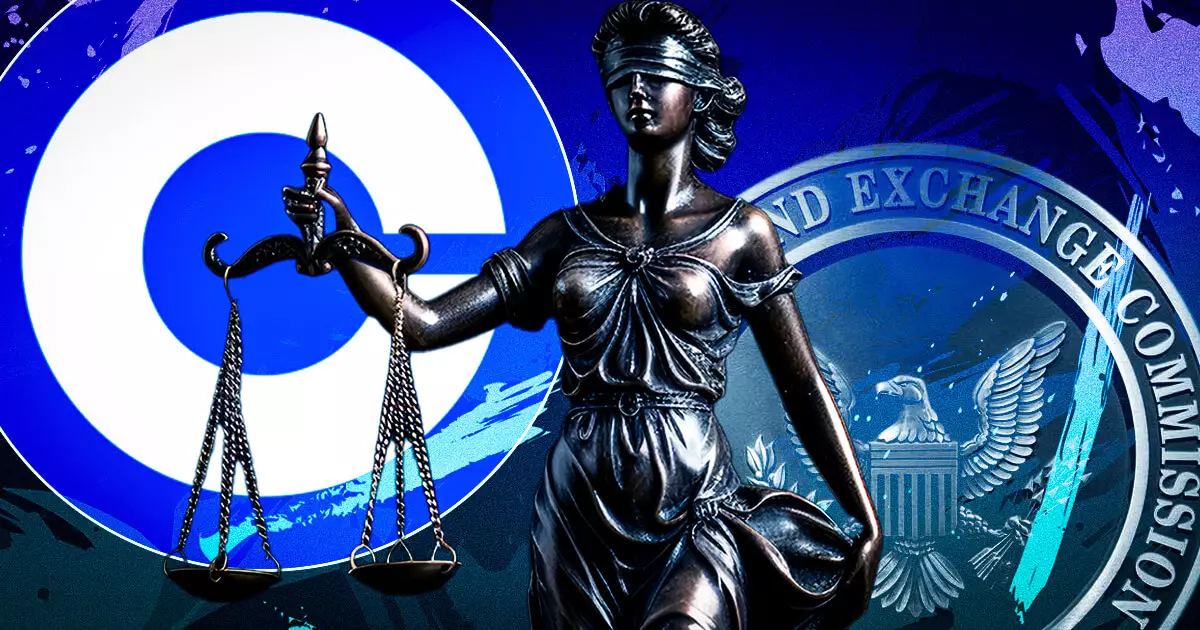In a court hearing on January 17th between Coinbase and the U.S. Securities and Exchange Commission (SEC), the focus was on the SEC’s charges against Coinbase for allegedly operating an unregistered national securities exchange, broker, and clearing agency, as well as engaging in unregistered sale and offering of securities through its crypto staking service. While Judge Katherine Polk Failla did not provide a ruling during the hearing, she expressed concerns that echo those of Coinbase. The judge questioned the SEC’s arguments, particularly in relation to the 13 crypto tokens that Coinbase provides access to but does not issue, which the SEC considers securities. Judge Failla expressed her apprehension, stating, “I am concerned… that what you’re asking for is to broaden the definition of what constitutes a security.”
Patrick Costello, the SEC’s assistant chief litigation counsel, presented a counterargument, claiming that the crypto tokens in question are part of a larger enterprise, such as a blockchain network, and can be seen as investment contracts. Costello pointed out that as the value of the network or ecosystem grows, so does the value of each token. Consequently, he argued that each token could be considered a security as the case unfolds. However, according to The Block, Costello acknowledged that the token issuers had “not exactly” violated securities laws. It is worth noting that the companies behind Cardano (ADA), Solana (ADA), and Polygon (MATIC) have previously denied their assets’ securities status and are not named as defendants in the SEC’s case against Coinbase.
FOX Business reporter Eleanor Terrett shed further light on the hearing, noting that Judge Failla questioned the SEC as to why she should not dismiss the case, a request also made by Coinbase. The judge cited Senator Cynthia Lummis’ support for dismissal, emphasizing Lummis’ deep involvement in the space. Judge Failla even referenced Lummis’ earlier statement suggesting that securities laws have had a good run for 90 years and may be outdated. This skepticism aligned with Coinbase’s argument that the SEC is misapplying the Howey Test of 1934, which determines whether a transaction is an investment contract. Coinbase asserted that the SEC had not demonstrated any contractual relationship between token issuers and Coinbase customers that would justify their claims. In Coinbase’s words, “The Commission’s complaint draws the court into completely unprecedented territory…. This is several bridges too far.”
Despite her critical stance towards the SEC, Judge Failla did not deliver a ruling during the hearing. Instead, she instructed both parties to consider the lack of a decision as a compliment, suggesting that each side had presented viable arguments. This neutral stance leaves the fate of Coinbase and the SEC’s case hanging in the balance, with further hearings or a potential dismissal yet to be determined.
The court hearing between Coinbase and the SEC shed light on the divergent opinions regarding the classification of crypto tokens as securities. While Coinbase raised concerns about the SEC’s attempt to broaden the definition of securities, the SEC argued that these tokens should be treated as investment contracts. Judge Failla’s skepticism towards the SEC’s claims and her consideration of Senator Lummis’ support for dismissal added further complexity to the case. Ultimately, the lack of a ruling during the hearing leaves Coinbase and the SEC awaiting further legal proceedings or the possibility of a dismissal.














